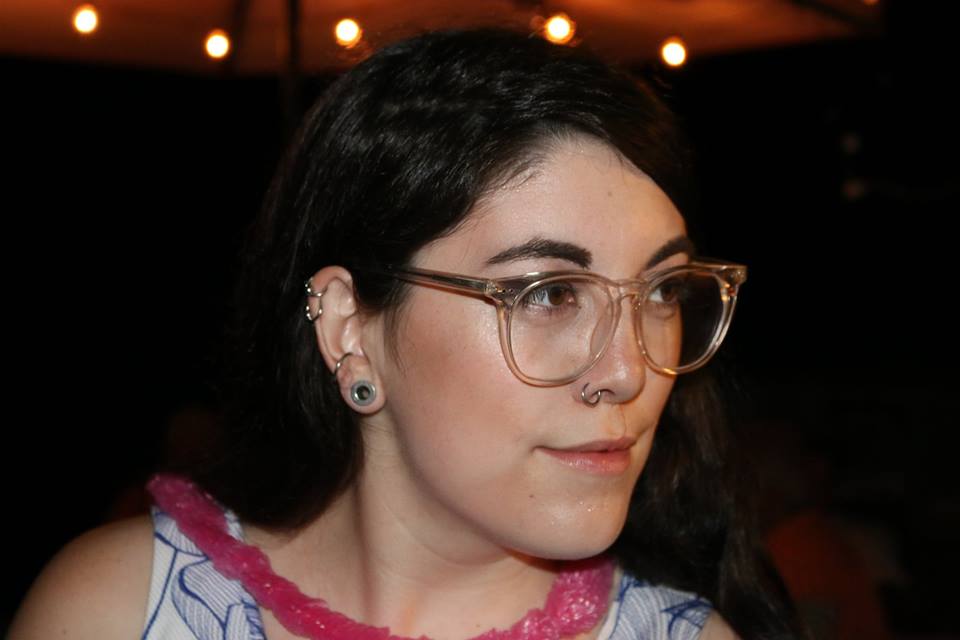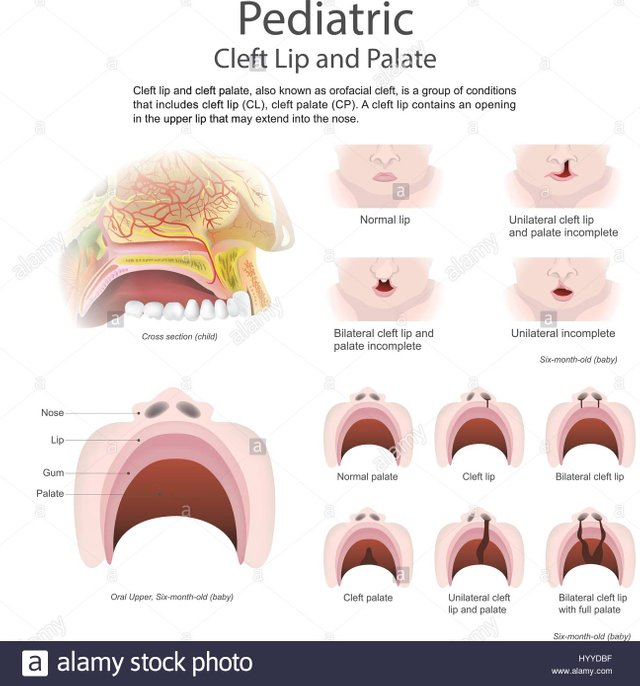What happens when disabled children grow up?
Hello Steemit,
This is me:

This photo was taken last year at a wedding. This lovely side view is the result of 21 years of surgeries (13 total!) and therapies.
I was born with cleft lip and palate, a birth defect that affects approximately 1 in 700 children [WHO, 2001]. Children with clefts frequently experience feeding problems, ENT infections, speech disorders, and hearing problems. Clefts can be syndromal, wherein its origin is known, or nonsydromal in the case of isolated clefts.
This is a typical presentation of cleft lip and palate:
I was born with a unilateral nonsyndromal cleft lip and palate. My nose was completely collapsed. My mom had to field a lot of questions from nosy strangers; more than one person condemned her for drinking during the pregnancy. She didn't, but that's really beside the point. I am fortunate in many ways: I haven't lost too much of my hearing; most other kids in my treatment group ended up getting ear tubes and hearing aids. I also was fortunate to have a successful cleft closure. Back when I was a kid, the surgeries were not quite as sophisticated as they are now. My close friend had her cleft reopen when we were about 10 years old.
While I am lucky that my physical appearance is more or less normal, the effects of my severe speech delay linger with me today. I have auditory processing issues. This means that I have a lot of problems finding words and understanding them when others are speaking.
I also still regularly get ear infections in my mid 20s. They seem much worse now than when I was a kid!
I have mentioned my treatment group previously. In the state where I grew up, we had a central organization that treated all of the children in the region with craniofacial deformities. The treatments were funded by the state, as we were all dirt poor! These benefits were only until we became adults.
This brings us to the title of my post. When we graduated from the program, we were left with no resources moving forward. We lost our dentists and our doctors that had been with us since the beginning, and we were left to navigate the health system with our residual issues still intact.
I had no clue where to go about my misaligned jaw. I had aged out of the system before I was able to get it fixed. Luckily, I found an adult cleft specialist in the area and have since been able to get further treatment with my private insurance.
Unfortunately, the speech and hearing difficulties continue. I still have difficulty with words. It affects my personal and work life, but I have learned to cope. The way I cope is by being as open as possible with my friends, family, and coworkers about it.
I can't help but think that me and so many other kids with deformities get left behind by the system. We are left behind once the outside is fixed, but we are left with the other, less obvious effects for the rest of our lives.
Don't get me wrong, I feel like I have come so far and done so well in my life. I am proud of being a cleftie and I feel like who I am is shaped by my experiences.
But I feel like I would be even better off if there was some sort of a program for young adults to help us cope with transitioning out of the system. We need help finding specialists to help us cope with our long term needs.
Health problems don't stop when the funding runs out. Kids with disabilities need lifelong support. I would love to hear if anyone else has an experience in transitional disability care.
Love always,
T
Reference:
World Health Organization. (2001, December). Global registry and database on craniofacial anomalies: Report of a WHO registry meeting on craniofacial anomalies. Bauru, Brazil: Author.

Thanks for sharing. The world needs to hear more from disabled people.
@OriginalWorks
The @OriginalWorks bot has determined this post by @tszasz to be original material and upvoted it!
To call @OriginalWorks, simply reply to any post with @originalworks or !originalworks in your message!
Agreed! Resteeming <3. Oops, I cannot due to timing.